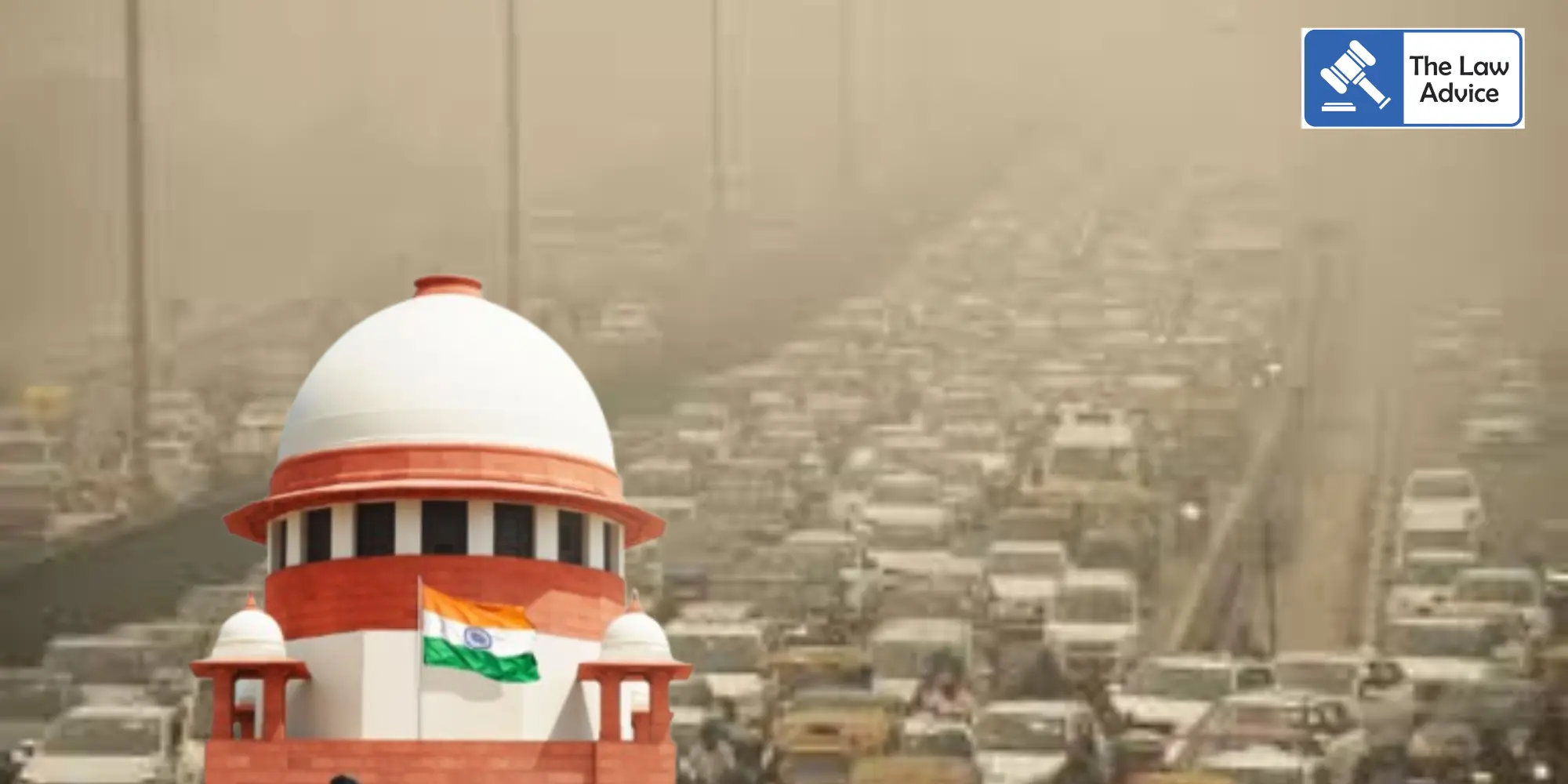
In response to the escalating air pollution crisis in Delhi-NCR, the Supreme Court has directed the Commission for Air Quality Management (CAQM) to file an affidavit detailing the preventive measures being taken to stop pollution levels from worsening further.
The Court was apprised that several air quality monitoring stations in Delhi are not operational, raising concerns about the accuracy of data used to implement pollution control measures.
A bench led by Chief Justice of India BR Gavai and Justice K Vinod Chandran heard the matter as part of the ongoing MC Mehta environmental case, which monitors pollution and environmental protection in the National Capital Region.
Earlier, on October 14, the Supreme Court had temporarily lifted the absolute ban on firecrackers, allowing the sale and use of green crackers during Diwali under strict conditions. The bench also issued multiple directions to ensure compliance and monitor pollution levels between October 14 and 25, 2025.
During today’s hearing, Senior Advocate Aparajita Singh, the amicus curiae in the case, urged the Court to seek a status report from the CAQM on the steps taken so far. She emphasized the importance of preemptive action, citing the Court’s earlier directions that authorities must not “wait for pollution to turn severe.”
The bench agreed and ordered:
“The CAQM is required to place on record an affidavit as to what steps are proposed to be taken so as to prevent the pollution turning to be severe.”
The CAQM’s counsel informed the Court that a report had already been filed earlier, but the bench could not consider it due to lack of time. However, the amicus referred to recent media reports indicating that only 9 out of 37 air quality monitoring stations were functioning on Diwali day, making it impossible to assess pollution levels accurately or trigger emergency measures like the Graded Response Action Plan (GRAP).
The CAQM’s counsel stated that monitoring data falls under the purview of the Central Pollution Control Board (CPCB), while the CAQM has already submitted its preemptive action plan. The Amicus, however, questioned why the CAQM was “shirking responsibility.” ASG Aishwarya Bhatti, representing state agencies, assured the Court that the necessary reports would be filed.
Key Directions from the Supreme Court’s October 14 Order:
A. Sale of green crackers listed on NEERI’s website permitted from Oct 18–20, 2025.
B. Sale allowed only at designated locations identified by district authorities and police.
C. Patrolling teams to monitor sale points and ensure only NEERI-approved products with QR codes are sold.
D. Random sampling of products to be done; violators’ licenses to be cancelled.
E. Use of firecrackers restricted to 6–7 AM and 8–10 PM on the day before and on Diwali.
F. Sale only by licensed traders; non-compliant firecrackers to be confiscated.
G. No entry of firecrackers from outside NCR.
H. Barium-based crackers or those not approved as green to be banned.
I. Series crackers (laris) prohibited.
J. E-commerce sale or purchase of firecrackers banned.
K. Expired or cancelled licenses to be renewed for the prescribed period.
L. CPCB and State Boards to monitor AQI daily from Oct 14–25, 2025, and collect sand and water samples from high-use areas for analysis.
The Court emphasized that this relaxation is only on a test basis, limited to the specified period, and subject to review based on compliance and results.
Case Title: MC Mehta v. Union of India, WP (C) No. 13029/1985
Website designed, developed and maintained by webexy